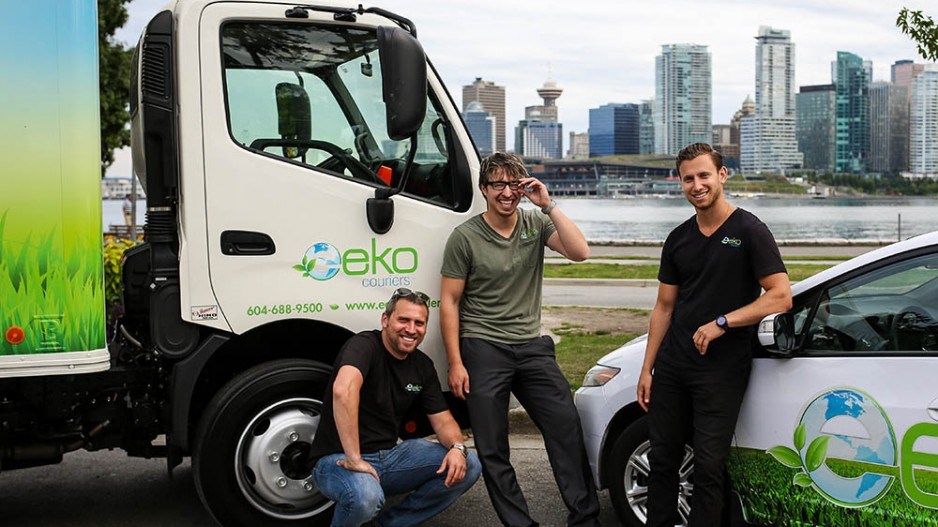When Michael Shekhtman launched Eeko Couriers with his brothers in 2009, the economy was still in the midst of a global recession that left companies pinching pennies any way possible.
A green courier service armed with a couple of hybrid vehicles going up against a rather entrenched industry seemed like a bit of a risk, the co-founder of the Vancouver-based company admitted.
“It’s a very, very competitive industry. Most people don’t make it past a year or two,” Shekhtman told Business In Vancouver.
“We didn’t realize at the time how big the sustainability push would be.”
Vancouver supports about 20,000 green or local-food jobs throughout the city, according to a June 19 report from the Vancouver Economic Commission (VEC). That’s a 19% increase between 2010 and 2013 — right at the time Shekhtman and his brothers were figuring out how to tweak the typical business model of the courier industry.
Most services enlist couriers who own their own vehicles and work off a commission, whereas Eeko Couriers supplies vehicles to drivers that are paid an hourly wage as full-time employees. An attempt at enlisting owner-operators at the same time supplying others with vehicles was short-lived, Shekhtman acknowledged.
The company owns 10 hybrid cars as well as a three-tonne hybrid freight truck — with a second on the way — to deliver packages across Metro Vancouver.
Workers get to take the logo-emblazoned vehicles home for their personal use, which works as free advertising and removes the added cost of paying to store them overnight in a lot.
Shekhtman said a service-oriented green business like Eeko can control costs more effectively than other kinds of green businesses such as sustainable construction firms.
“We take a little hit on our margins, but we still remain very competitive. If not cheaper in some instances,” he said.
The company has eliminated paper consumption by relying on digital signatures and invoices, and uses software to calculate the emissions.
Drivers are dispatched in the morning based on how close a package is to their own home.
Shekhtman said using this model of sustainability, they’ve been able to attract clients like HootSuite, Van Houtte Coffee and the Vancouver Aquarium.
Eeko also has a deal with Whole Foods by which drivers deliver groceries to car-free customers who don’t want to lug an armful of bags home on the bus.
Shekhtman wouldn’t detail the company’s financials but said Eeko’s revenue has doubled every year it’s been in business.
Climate Smart, an organization that helps businesses implement sustainable environmental practices, got the company on the right footing from the outset, Shekhtman said.
The organization noted the Eeko's emissions aren't expected to double despite all the year-over-year growth. Climate Smart credited innovative delivery systems — such as using bikes for downtown pickups before couriers take the SkyTrain to get to the suburbs and drop off a package with a hybrid car for final delivery — as one of the reasons for its success at being a sustainable company.
“It’s not only about sustainability,” Shekhtman said.
“We could have grown 10-fold. I could have hired another 10, 20 owner-operators that could just sit there and wait for our call. But we’re big into walking the talk in terms of what we believe in.”




